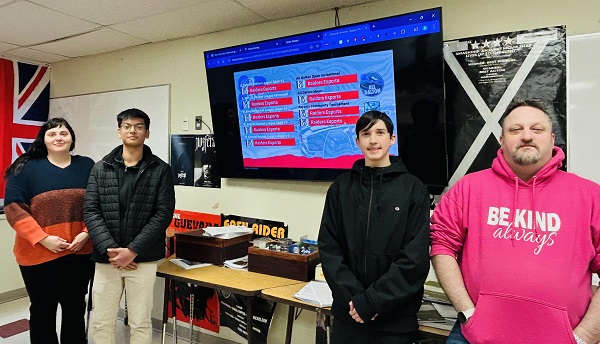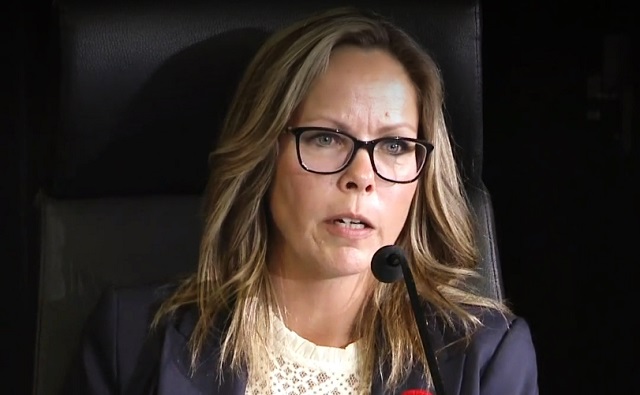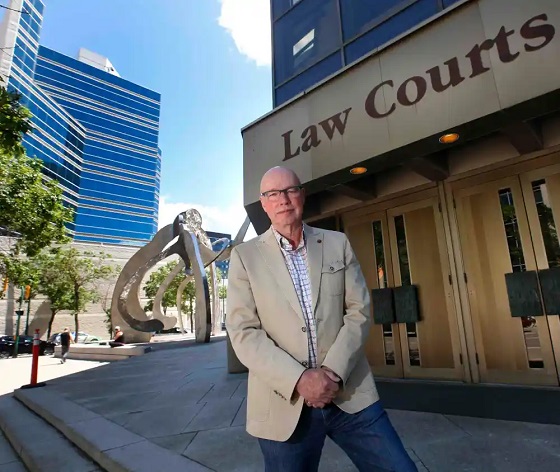Education
Local college students the focus of RDC study on student debt and financial wellness.

Student Debt & Financial Wellness
By Jason Engel and Doug MacDormand
A recent poll completed by Ipsos for BDO Canada showed that over three quarters of post-secondary students regret the amount of debt they accumulate while in school. There is certainly a lot of discussion about the financial burden facing students in post-secondary education, and how financially literate and financially well students are. With this in mind a group of students at Red Deer College completed a study on student debt and financial wellness.
With debt a concern amongst post-secondary students, it is not surprising to find that the largest portion of their education funding (33%) comes from student loans. The second largest (23%) comes from parents or family, followed by work (19%). With debt loads continuing to rise amongst students, this is a source of considerable concern. Just over half of students reported using student loans. Of those, over 40% expect to have a student debt load of over $30,000 upon graduation. 70% reported they expect over $20,000 in debt. A $30,000 student debt would equate to a monthly payment of roughly $375 over ten years, depending upon the interest rate. Statistics Canada reports that the average student debt in Canada is $26,000, so these expectations would seem to accurately reflect reality.

Where funding comes from: 33% student loans 23% parents / family 19% working
The vast majority (81%) have a credit card. 59% pay it in full every month, which is slightly higher than the overall population. It is encouraging that students are improving on their parents’ record of financial management. Of those that have a balance, they tend to be lower, with over 80% having a balance under $2,500. This would be lower than the general population, though this would likely be restricted by the limits that lenders would allow for students. Students feel pretty good about their savings habits and credit card management. Just over half reported that they are good or very good at saving for the future. Two-thirds reported they are good or very good at managing their credit card.

81% of students have a credit card. 59% of cc holders pay entire balance every month.
Not surprisingly, the vast majority of students work, with only just under one quarter (24%) reporting that they do not. Just over one half (52%) work part time. When it comes to transportation, the vast majority (76%) drive to school and work. The largest segment (41%) lives with parents or family, while the next largest rent (34%).

Other financial factors: 52% of RDC students have a part time job. 76% drive to school. 41% live at home. 34% rent.
For financial advice, students tend to go to family first, rely on themselves second and the internet third. This has interesting implications for financial advisors, in particular in light of recent developments around robo advisors.
The Donald School of Business, Red Deer College strives to bring practical, real world learning experiences to the classroom. Every year business degree students complete statistical studies on various topics. These studies are completed for a client, such as a local business or non-profit organization. This year, one group chose as their topic the financial wellness of students.
The students that completed the study are Alexander Abuzidan, Malika Khanjer, Jameica Miller, Amanda Tuccaro, Sangita Pandey and Morgan Vandenhoven. 200 Red Deer College students were surveyed during March of 2018. These survey findings are accurate with a 7% margin of error, 19 times in 20.
Red Deer College is a comprehensive community college serving learners in central Alberta with a variety of certificates, diplomas, collaborative degrees, trades, and continuing education. The Alberta government recently announced that RDC will be pursuing university status. Jason Engel and Doug MacDormand are instructors in the Donald School of Business, Red Deer College.
Education
Lindsay Thurber esports students dominate global stage

From left are Teacher Alayne Baggaley, Grade 11 student Ejhisen Tabilisma, Grade 12 student Colten Kilpatrick and Teacher Dan Mills.
The Lindsay Thurber Comprehensive High School Esports Club is making waves, with its students climbing the global ranks of Rocket League – one of the world’s most competitive video games.
Colten Kilpatrick, a Grade 12 student, Ejhisen Tabilisma and Ethan Kuhn, both Grade 11 students, are proving that gaming isn’t just for fun – it’s a battleground for skills, strategy and success.
“I’m currently in the top 500 in Canada and the top 3,000 in the world,” said Colten, adding that Rocket League currently has approximately 90 million active players.
Rocket League, a high-octane fusion of soccer and rocket-powered cars, demands precision, teamwork, and split-second decision-making in which players control flying, boosting, and flipping vehicles to score goals in gravity-defying fashion. More than just a game, it fosters critical skills like strategic thinking, teamwork, effective communication, problem-solving, and resilience – qualities that extend far beyond the virtual field.
The Lindsay Thurber Esports Club, coached by Teachers Dan Mills and Alayne Baggaley, competes through Generation Esports, an international organization that runs competitive leagues and tournaments for schools that have students competing against other teams/students from across North America. To date, the teams have competed against players all over the United States, Canada and Mexico. The club not only provides a platform for competition, but also strives to foster and develop leadership, teamwork and STEM skills. Students in the club are also actively encouraged to maintain a balanced approach to their school work and classes with an emphasis on successfully completing their classes and course work.
Their achievements have drawn comparisons to elite athletes. “What these students are accomplishing is the equivalent of playing on an NHL team while still attending high school,” said Dan, adding the team has competed in nine international tournaments this year and have claimed first place in eight of them.
For Ejhisen, joining the Esports Club was a natural expression of his passion for gaming. Colten, on the other hand, was hooked from the moment he started playing. His dedication has landed him a spot on Nat 5, a professional esports team in Canada. “We recently played in the North American qualifier with 1,100 teams – and we placed 100th,” he said. The North American Qualifier sends the top 64 teams to compete for a position at the RLCS World finals which awards a prize pool of more than $1.1 million annually.
Colten’s esports success has also opened doors for his future. This fall, he will head to Spring Arbor University in Michigan on a scholarship, where he’ll compete on a collegiate Rocket League team while studying graphic design. Ejhisen has big plans, too – after graduating in 2026, he will pursue a career in medicine.
With their talent, drive, dedication and ambition, these Lindsay Thurber esports students are proving that gaming is more than just a pastime – it’s a pathway to a successful future.
Alberta
Alberta Budget 2025: Health and education

Budget 2025 makes another record health care investment of $28 billion for a refocused health care system that ensures every Albertan has access to high-quality, reliable services close to home. The budget supports the government’s plan to provide targeted, specialized care in the four areas of acute care, primary care, mental health care and continuing care.
With the highest-ever operating budget of $9.9 billion for education from kindergarten to Grade 12, Budget 2025 will help hire thousands more teachers and support staff, lower class sizes and provide enhanced educational support to students with complex needs.
The budget invests $2.6 billion in capital dollars over three years, an increase of 23.9 per cent from the last budget. This includes $225 million to advance the planning and design of 30 new schools, five replacement schools, three modernization school projects, three public charter school projects and modular classrooms. These schools are in addition to the 22 that have been advanced to the next construction phase under the School Construction Accelerator Program, launched in fall 2024. Another 28 projects are in other stages of construction. Alberta’s government is committed to building much needed schools across the province and aims to deliver more than 100 new and updated schools – or about 200,000 student spaces – over the next seven years.
“All Albertans deserve access to the best our health care and education systems have to offer. Alberta is growing as many families choose us as home. Budget 2025 will help meet the growing demands of the province while continuing to provide the services Albertans have come to trust and rely on.”
Budget 2025: Strengthening health care
Budget 2025 supports the government’s plan to build a refocused health care system that will provide Albertans with the necessary care when and where they need it.
Health investments across the refocused health care system in Budget 2025 include:
- $644 million for primary care to attach every Albertan with a primary care team and improve access to family doctors and frontline health-care professionals. This includes $20 million to support the work of nurse practitioners.
- $4.6 billion for acute care, to support increases to services to meet volume and costs, and to improve the acute care system in hospitals, urgent care centres, chartered surgical and other health facilities.
- $45 million for Indigenous health initiatives over three years, to help address health inequities and promote health, wellness and increased choice.
- $7 billion for physician compensation and development, including $15 million for recruitment and retention.
- $1.9 million for drugs and supplemental health benefits including the seniors drug program, which is the largest component that supports more than 700,000 seniors.
- $1.7 billion to support addiction and mental health services to increase access to the supports Albertans require to pursue recovery and personal wellness. This includes implementation of the compassionate intervention framework, support for Recovery Alberta services, new recovery communities, and to expand mental health classrooms for clinical support to students with complex mental health needs.
- $3.8 billion for Assisted Living Alberta, the new provincial continuing care health agency, which will provide wraparound medical and non-medical supports, home care, community care and social services.
A total of $3.6 billion in capital dollars over three years will support new urgent care and primary care centres, build capacity at existing hospitals, expand surgical capacity, enhance rural hospitals and health facilities, and replace aging equipment to support improved health outcomes. This includes:
- $769 million to support transformational changes in continuing care, increase the number of assisted living spaces and modernize existing assisted living homes in Alberta.
- $265 million for the Alberta Surgical Initiative capital program to expand, renovate and build more operating rooms to boost surgical capacity.
- $207 million for the development of specialized compassionate intervention facilities to provide care for patients.
- $168 million in new funding to enhance diagnostic capabilities across the province.
- $148 million to continue building Recovery Communities. A total of 11 recovery communities, including five in Indigenous communities, have been approved, with the Calgary Recovery Community scheduled to open in 2025. So far, 200 new addiction treatment beds are operational in Red Deer, Lethbridge and Gunn.
- $60 million over three years to purchase new EMS vehicles and ambulances, upgrade the existing fleet and buy more equipment.
“Budget 2025 builds on our commitment to refocusing Alberta’s health care system, improving access for Albertans, and supporting frontline workers. With significant investments in primary care, capital projects, Indigenous health, and acute services, we are ensuring Albertans receive the care they need, when and where they need it.”
“Alberta is an international leader in addiction treatment and recovery, driven by the Alberta Recovery Model. We remain committed to investing in the wellness of Albertans and providing those struggling with mental illness or addiction with the services they need to rebuild their lives. We are also committed to expanding access to treatment services by building new facilities across the province.”
Budget 2025: Investing in kindergarten through Grade 12 (K-12) education
Albertans deserve world-class education for their families now and in the future. Budget 2025 provides an operating expense budget of $9.9 billion in 2025-26, a 4.5 per cent increase from the 2024-25 third-quarter forecast.
- $54 million in 2025-26, along with $348 million more over the following two years will support additional enrolment growth.
- an increase of $55 million in 2025-26, and another $94 million in each of the following two years, to adjust the funding formula for school authorities to provide increased sustainable funding for growth within the funding model.
- In total, almost $1.1 billion will be provided over the next three years to address growth and hire more than 4,000 new teachers and classroom support staff.
- More than $1.6 billion in 2025-26 will support students with specialized learning needs or groups of students who need additional help.
- An investment of $55 million in 2025-26, a 20 per cent increase from last year, will allow school authorities to add staff and supports to complex classrooms so students receive the focus and attention they need.
- $389 million over three years will provide increases to funding rates to cover the rising costs of maintaining educational facilities, unavoidable expenses like insurance and utilities, and providing programs and services to students.
“Budget 2025 offers solutions to many of the challenges our education system is experiencing. We’re making new investments to hire more teachers, build more schools and give our youngest learners the strongest possible start. I’m excited to present this strong education budget to Albertans and am confident it will help keep our education system world-class.”
As Alberta continues to attract families, workers, and businesses, strategic investments in health care and education will address current demands and lay the groundwork for long-term prosperity.
Budget 2025 is meeting the challenge faced by Alberta with continued investments in education and health, lower taxes for families and a focus on the economy.
Related information
-

 Alberta2 days ago
Alberta2 days agoAlberta to unlock new market potential
-

 Crime2 days ago
Crime2 days agoChinese Narco Suspect Caught in Private Meeting with Trudeau, Investigated by DEA, Linked to Panama, Caribbean, Mexico – Police Sources
-

 National2 days ago
National2 days agoTrudeau has made 104 appointments, including 9 senators since announcing resignation: records
-

 Business1 day ago
Business1 day agoDoug Ford needs to ditch the net-zero pipedreams
-

 COVID-191 day ago
COVID-191 day agoVerdict for Freedom Convoy leaders to be read April 3
-

 Business2 days ago
Business2 days agoElon Musk says X targeted by “massive cyberattack” originating in Ukraine
-

 COVID-191 day ago
COVID-191 day agoCanadian court approves $290 million class action lawsuit against Freedom Convoy
-

 Business1 day ago
Business1 day agoPoll shows eight-in-10 Canadians oppose MP pay raise




